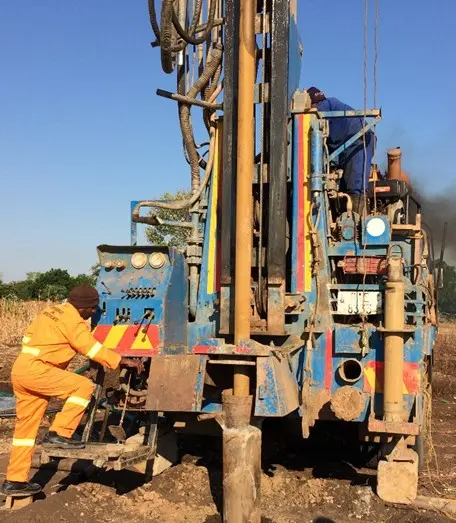Access to clean and reliable water is crucial for households, businesses, and communities. While municipal water supplies or surface water sources are common, these options can be inconsistent, costly, or environmentally unsustainable. Borehole drilling—a method of tapping into underground aquifers for water—offers a practical and long-term solution. But is it the right choice for you? This guide explores the benefits, potential challenges, and key considerations of drilling a borehole.
What is a Borehole?
A borehole is a deep, narrow well drilled into the ground to access groundwater. It serves as an independent, sustainable source of water for domestic, agricultural, or industrial use. By extracting water stored in underground aquifers, boreholes provide a steady supply that is less affected by environmental factors like droughts or floods.
Why Drill a Borehole?
1. Reliable and Constant Water Supply
Boreholes offer year-round access to water, regardless of weather conditions or seasonal fluctuations. Unlike surface water sources that can dry up during droughts or become polluted during floods, borehole water is stored in underground aquifers, making it a dependable solution.
In drought-prone areas like northern Ghana, many communities rely on boreholes to meet their daily water needs. Farmers report that having a borehole has allowed them to irrigate crops even during dry seasons, ensuring steady income and food supply.
2. Cost-Effective Solution
While the upfront cost of drilling a borehole may seem high, the long-term savings are substantial. Once operational, a borehole eliminates monthly water bills, and maintenance costs are typically low.
- For Businesses: Industries that consume large volumes of water, such as hotels or manufacturing plants, can significantly reduce their operational expenses by investing in a borehole.
- For Homes: Families with high water usage, particularly those with gardens or livestock, benefit from consistent and free water access.
3. Superior Water Quality
Groundwater from boreholes is naturally filtered as it passes through layers of soil and rock, making it cleaner and less likely to be contaminated by surface pollutants. Proper testing and treatment ensure it meets safety standards for drinking, cooking, and other domestic uses.
- Real-Life Example:
A homeowner in Accra switched to borehole water after recurring issues with chlorine taste in municipal water. After installation, they found the water to be fresher and better suited for cooking and drinking.
4. Environmentally Friendly
Using a borehole reduces the strain on overused surface water sources and minimizes reliance on energy-intensive municipal water systems. This eco-friendly approach conserves local water ecosystems and reduces carbon emissions associated with water transportation.
5. Increased Property Value
A borehole is a valuable asset that enhances the functionality and marketability of your property. In regions where water supply is unreliable, properties with boreholes are particularly appealing to potential buyers.
6. Boosted Agricultural Productivity
For farmers, boreholes provide a stable irrigation source, allowing for consistent crop growth and reduced dependence on unpredictable rainfall. This leads to better yields, improved food security, and higher profits.
Potential Challenges and Risks
While boreholes offer numerous advantages, it’s important to consider the potential challenges:
- High Initial Cost: The upfront expense of drilling and installing a borehole system can be prohibitive for some.
- Regulatory Compliance: Borehole drilling may require permits and adherence to local regulations. Failure to comply can result in fines or operational delays.
- Over-Extraction Risks: Excessive groundwater extraction can deplete aquifers and affect nearby wells or ecosystems.
- Maintenance Needs: While maintenance is infrequent, issues like pump failure or contamination may require professional intervention.
- Feasibility Limitations: Not all areas have suitable underground water reserves. Hydrogeological surveys are essential before drilling.
Key Considerations Before Drilling
1. Conduct a Feasibility Study
Hire a professional to perform a hydrogeological survey to determine whether your land has sufficient groundwater and if it’s suitable for drilling.
2. Understand Local Regulations
Check with local authorities for permits or guidelines. In Ghana, specific regions may have restrictions on groundwater usage or drilling.
3. Choose a Reputable Drilling Company
Work with experienced professionals to ensure proper installation and long-term reliability. Request references and review their track record.
4. Budget for Upfront Costs
Obtain detailed quotes and consider the long-term financial benefits to justify the initial investment.
5. Plan for Maintenance
Schedule regular inspections and servicing to keep your borehole running efficiently and avoid costly repairs.
Real-Life Testimonials
- “Drilling a borehole on our farm transformed our operations. We now have consistent water for irrigation and no longer worry about dry spells affecting our crops.” – Farmer in Tamale
- “Having a borehole at home means we never run out of water, even during municipal supply shortages. It’s a game-changer for our family.” – Homeowner in Kumasi
Additional Resources
For those considering borehole drilling, here are some helpful links:
- Ghana Water Resources Commission Guidelines
- CSIR Borehole Feasibility Studies
- Environmental Impact of Boreholes
Final Thoughts
Drilling a borehole is a practical and sustainable solution for accessing water. Its benefits, from reliable supply to long-term cost savings, make it an attractive choice for homes, businesses, and farms. However, it’s important to weigh these advantages against the initial costs and potential challenges.
If you’re considering drilling a borehole, consult a professional drilling company to evaluate the feasibility of your site and guide you through the process. With proper planning, a borehole can provide clean, reliable water for decades to come, transforming lives and livelihoods.

